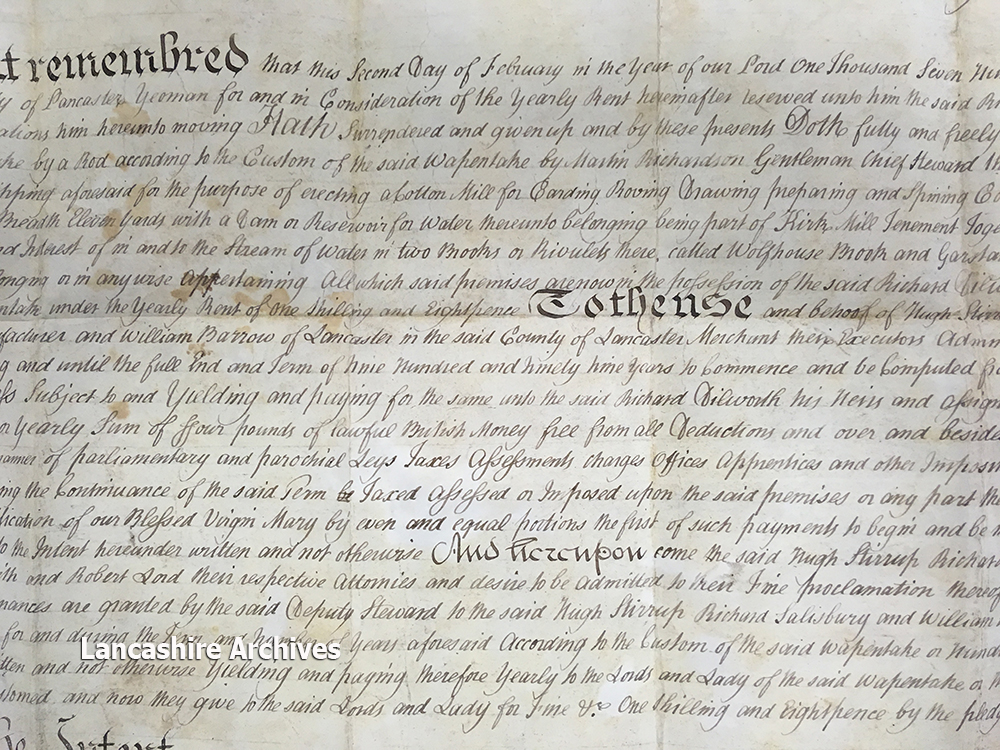 1785
1785 1519
Chairmaking, cotton spinning and weaving were domestic activities in Chipping.
1785
Kirk Mill sold to Hugh Stirrup, John Shakeshaft, Richard Salisbury and William Barrow to form first cotton spinning company
1787
Kirk Mill owners bankrupt, first cotton spinning company put up for sale
1789
Kirk Mill was auctioned in Preston on 25th June, 1789. Bought by Peter Atherton and his son in law Ellis Houlgrave cotton manufacturer,
1792
Houlgrave agreement with Weld to build corn mill other end of Chipping to divert Leagram waters and improve supply to Kirk Mill. This was Chipping Mill
1793
Kirk House built
1799
The second cotton-spinning company came to an end and was put up for sale
1801
The third cotton-spinning company is set up by J. Bury and Co.
1808
The third company was sold and the fourth company established by Routh, Middleton & Co.
1819
Factory Act passed
1823
Grove row built as workhouse – Aspin, p.133
1823-4
Reports into 1819 Factory Act showed 2 mills at Chipping worked 78 hours a week with no breaks. Free accommodation. Evans employed 10 men, 7 boys 24 women, using ‘Crompton’s Mule’ – technology of the age. (Crainer, 1984)
1824
Report on conditions at the mill reached Home Office. Mill now owned by Middleton, Rooth & Co. “There are 74 persons employed, of whom several are under 9 years of age. They work 78 hours in the week. The workpeople have their breakfasts brought to them in the factory, and the machinery is not allowed to stop whilst they eat it. They have 40 minutes allowed for dinner. The interior walls and ceilings are whitewashed once a year. There is not a copy or abstract of the Act of Parliament here. All the children go to Sunday school” – Aspin, p.138
1839
c. 1839, the fifth cotton-spinning company came into being and Kirk Mill had its own gas-making plant.
February, 1839
Gas light explosion, reported in Preston Chronicle
1851
Flash flood over Parlick. Kirk Mill is flooded
1854
The fifth cotton-spinning company ceases to exist and the sixth takes over, owned by John Lowry
1860s
Experts say these mills were spinning ‘bottom of the market’ cotton. Suitable for weaving into towels. Info from local carrier’s records 1860s. Transporting quality cotton to this remote spot by then was a disadvantage. Best supplies went to bigger mills run on steam, near canals / railways. So they were at the end of the queue in the cotton famine up here. (Muriel, Chipping Hist. Soc.)
1861
Joh Lowry dies and the sixth cotton-spinning mill taken over by his wife. The cotton famine is affecting business
1866
Kirk Mill bought from John Evans by Preston Banking Company. (Crainer, 1984)